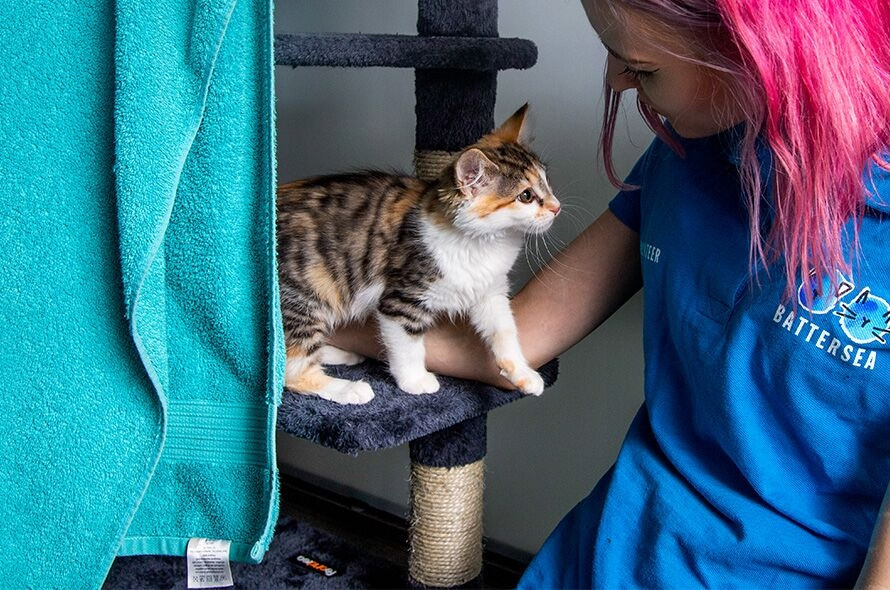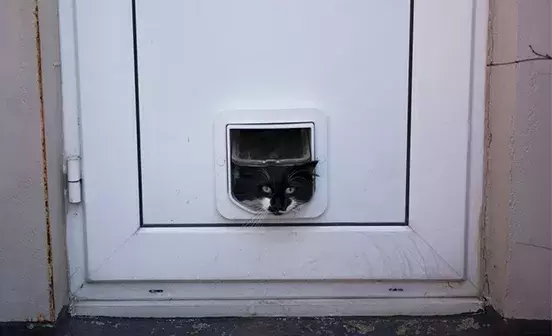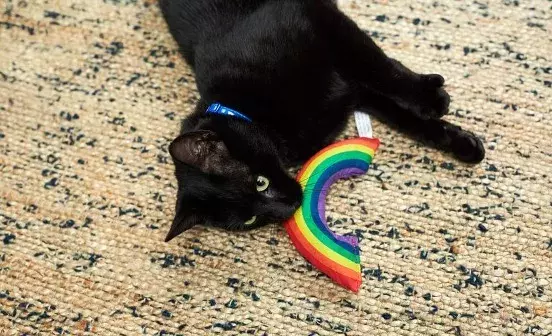A cat behaviourist (often called a Cat Behaviour Counsellor or Consultant) is a professional person who helps owners to resolve or understand any kind of behaviour in their cats that is worrying them or they find difficult to handle. Some UK cat behaviourists are also vets and tend to be called Veterinary Behaviourists.

Choosing a cat behaviourist to help with a problem can be challenging, as the profession is not regulated like it is with vets, doctors or lawyers, but your local vet should be able to recommend someone.
HOW DO I KNOW A CAT BEHAVIOURIST HAS THE RIGHT QUALIFICATIONS?
Experience and qualifications are essential for a good cat behaviourist. Your vet should be able to recommend a good behaviourist and make sure you get a recommendation from someone you can trust. All good cat behaviourists in the UK work on referral from vets only.
There are also various professional associations for pet behaviour counsellors in the UK; for example, the Association of Pet Behaviour Counsellors (APBC) or the Fellowship of Animal Behaviour Clinicians (FABC).
The Animal Behaviour and Training Council (ABTC) is a regulatory body and the only welfare charity that is mainly concerned with protecting the welfare and wellbeing of animals undergoing training and behaviour interventions.
The ABTC maintains a national register of appropriately qualified behaviourists and is endorsed by Battersea as well as other major UK animal welfare charities, and behavioural and veterinary organisations.
Many behaviourists work mostly with dogs, but this doesn’t mean that they will not be able to help you; many practitioners who work with a number of species are extremely effective. However, particularly in more complex cases, it can be beneficial to work with someone who has a particular interest and experience with cats.
WHAT HAPPENS IF I HAVE TO SEE A BEHAVIOURIST ABOUT MY CAT?
Most behaviourists, when working with cats, will visit you at home. Some may ask you to take your cat to them and provide photos, floor plans and video footage of your home instead.
The behaviourist will discuss your cat’s background and the particular problem you are concerned about. They will then give you advice, guidance and instructions to follow. The advice may include, for example, making changes to your home, adopting new routines or interacting differently with your cat.
The behaviourist should work closely with your vet and may liaise with them to discuss the possible use of medication that will help to make your cat feel better.
The behaviourist will support you for an agreed period to ensure you and your cat get the most benefit from the advice.
HOW MUCH DOES A CAT BEHAVIOURIST COST?
The fees for a cat behaviourist can vary according to the behaviourist’s experience and location, but some pet insurance companies will cover them, so it is worth checking with your insurers.
HOW DO I PREPARE FOR A VISIT FROM A CAT BEHAVIOURIST?
Depending on the problem, it may be useful to collect video footage or photos of the behaviour or keep a diary of what you’re observing (e.g. how often the problem is occurring, when it happens, what's going on at the time etc.)
Before the visit, make sure you have either forwarded all the necessary paperwork to the behaviourist (including any pre-consultation questionnaire and medical notes from your vet) or you have them prepared and ready.
Make some notes beforehand about important dates and facts to help you remember the sequence of events associated with the behaviour. Also make a note of any specific questions you have so you don’t forget to mention them on the day.
The behaviourist may specifically request that your cat is kept indoors in preparation for the visit, so you might have to plan ahead and ensure your cat is safely indoors before the visit is due to start.
The behaviourist is there to help you and not judge you so don’t be afraid to be completely open and honest about what you have or haven’t done. This should be an enjoyable learning experience which helps you to improve your relationship with your cat as well as their welfare and quality of life for the future.
Download the advice on this page as a handy advice sheet and to use as a reminder.



